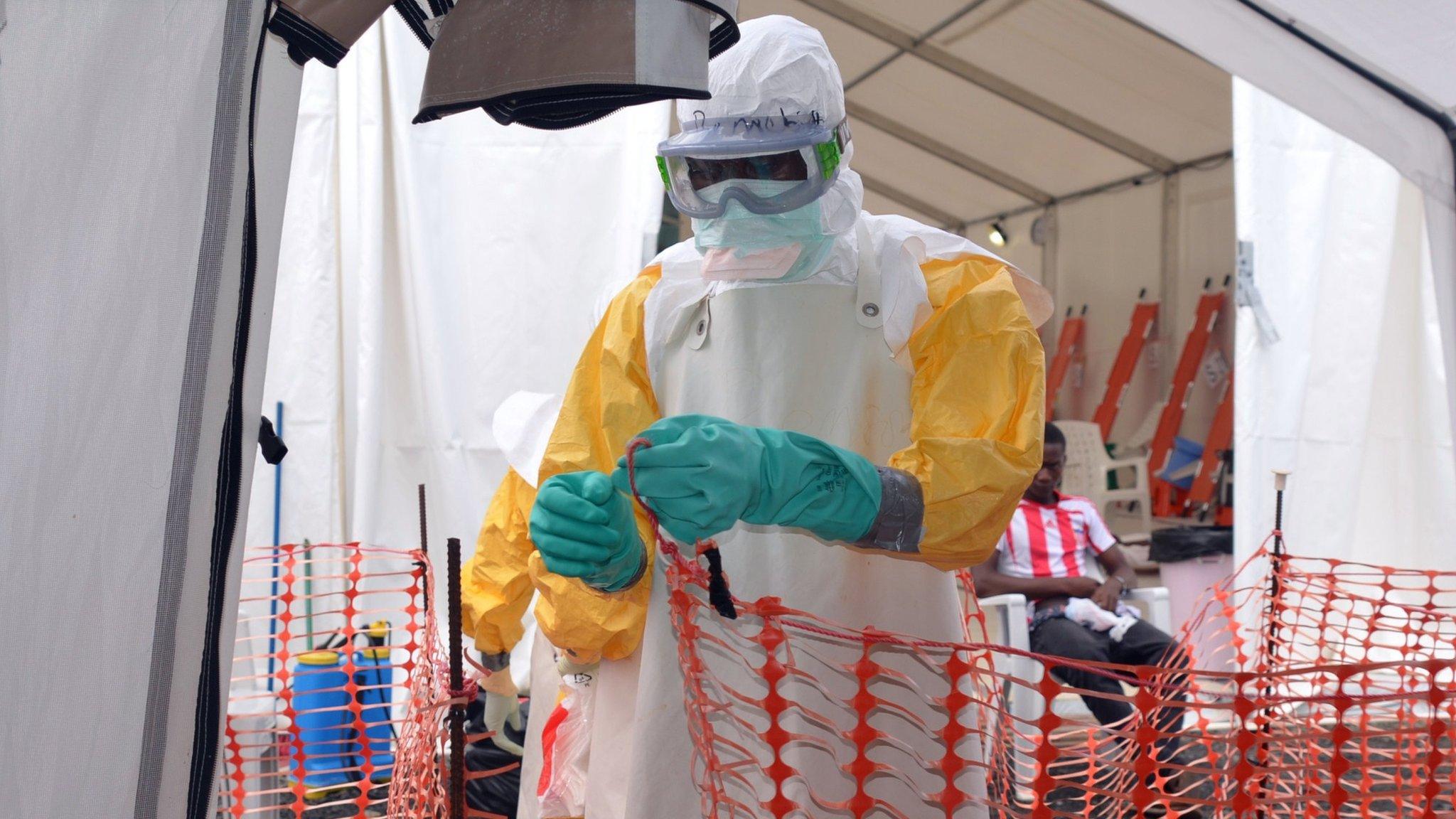Ebola in Sierra Leone 'spreading quickly' - campaign group
- Published
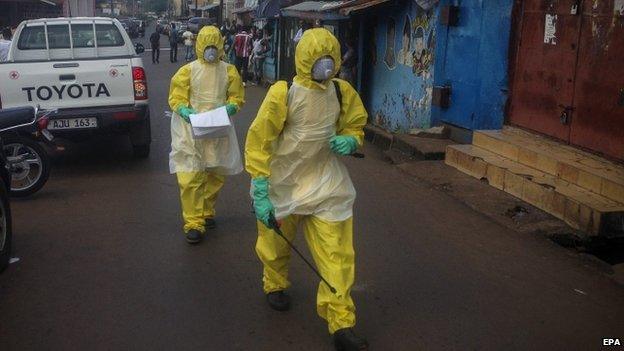
In Freetown, Sierra Leone's capital, Ebola cases are six times higher than two months ago
Ebola cases are continuing to rise "frighteningly quickly" in areas of Sierra Leone, an international campaign group has said.
The Africa Governance Initiative (AGI) found that in rural parts of the country the virus is spreading nine times faster than two months ago.
In Liberia, however, the rate of new cases appears to have slowed.
AGI's findings come after World Health Organization officials told the BBC the number of new cases is levelling off.
Though Sierra Leone's rural areas have been worst hit, the group says the spread of Ebola is also increasing in the capital Freetown - which is recording six times more cases per day compared to two months ago.
The virus has only started to slow in one region of Sierra Leone, Bombali in the country's north.
Ebola deaths
Figures up to 13 January 2016
11,315
Deaths - probable, confirmed and suspected
(Includes one in the US and six in Mali)
-
4,809 Liberia
-
3,955 Sierra Leone
-
2,536 Guinea
-
8 Nigeria
AGI - an organisation set up by former UK Prime Minister Tony Blair that operates in the affected countries - says it is not sure why cases are slowing in Liberia.
But the group says burial management has "improved significantly" in both Liberia and Sierra Leone. Half of all Ebola infections are thought to come from the bodies of victims.
AGI Chief Executive Nick Thompson said: "The picture is certainly changing but that's all we can say for sure at the moment.
"The pace of the spread in rural Sierra Leone shows we still have no time to lose."
On Friday 31 October the WHO said there had been 13,567 cases, external since the outbreak began, with 4,922 confirmed people to have died from the disease.
Cumulative deaths up to 29 October
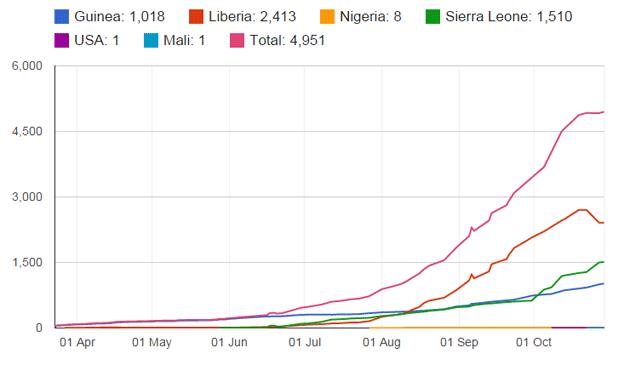
Note: figures are occasionally revised down as suspect or probable cases are found to be unrelated to Ebola
- Published14 October 2014
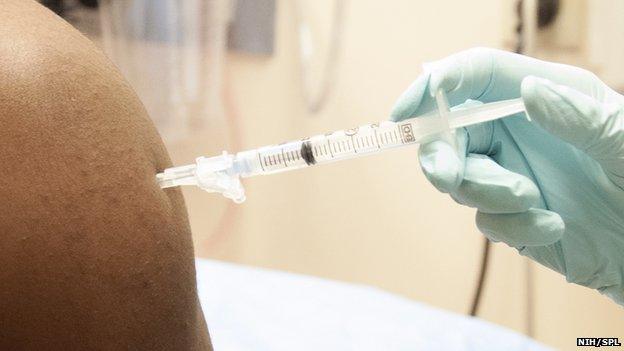
- Published6 September 2014
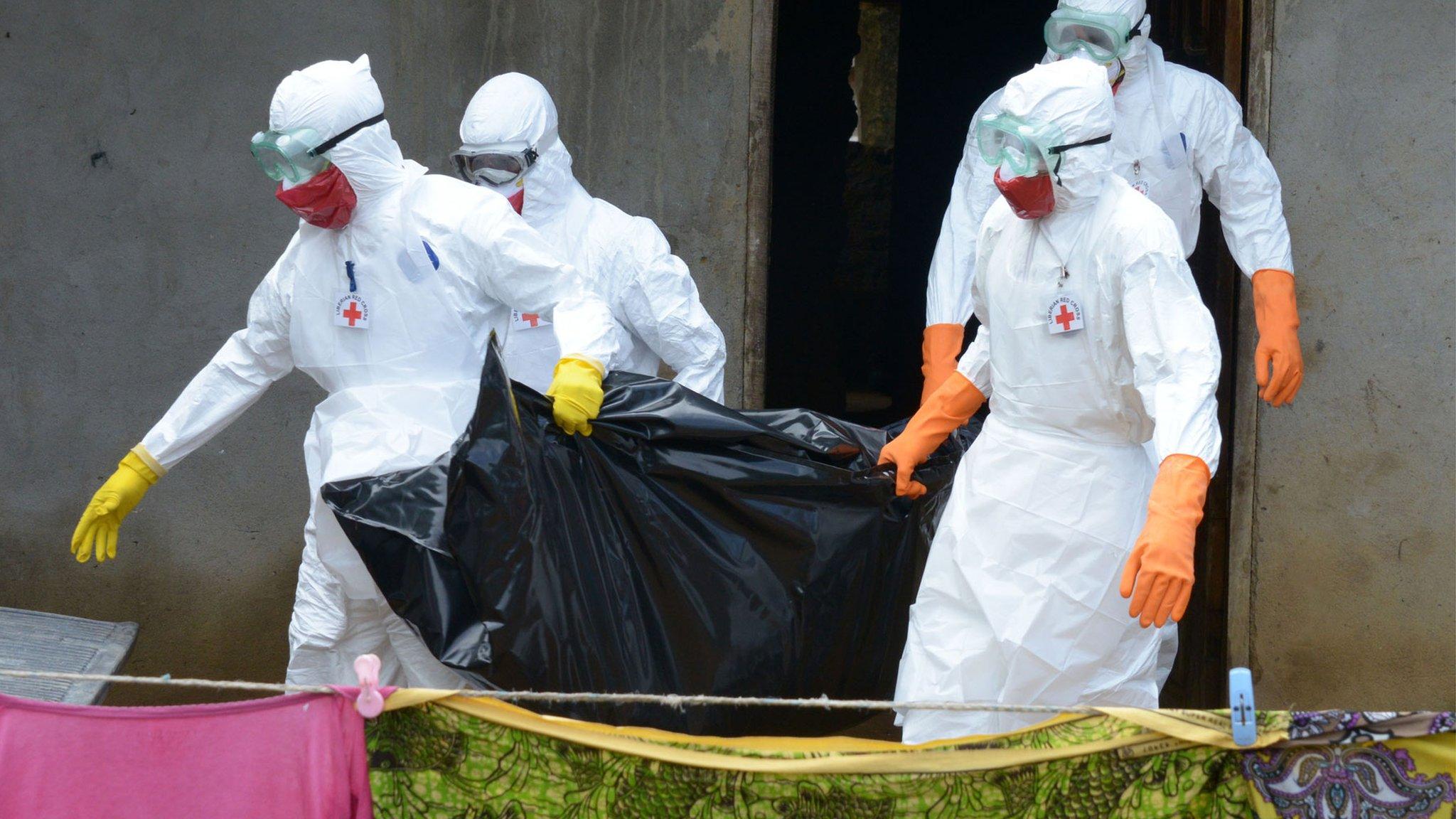
- Published14 January 2016
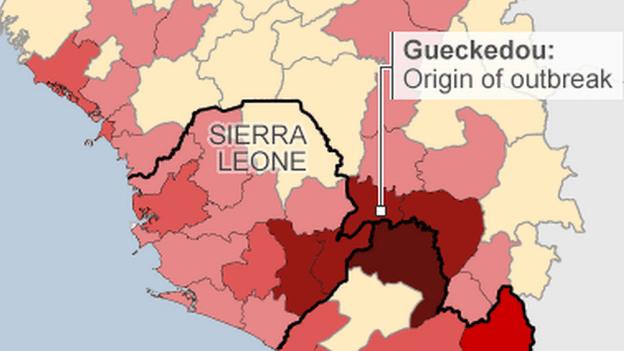
- Published2 November 2014
